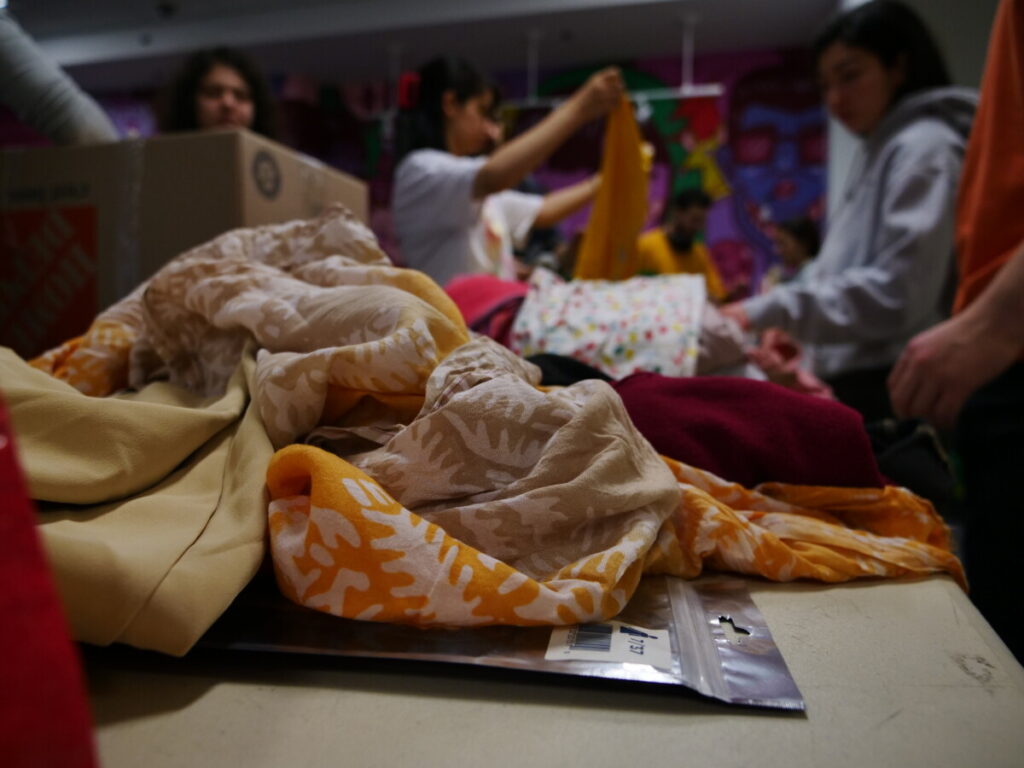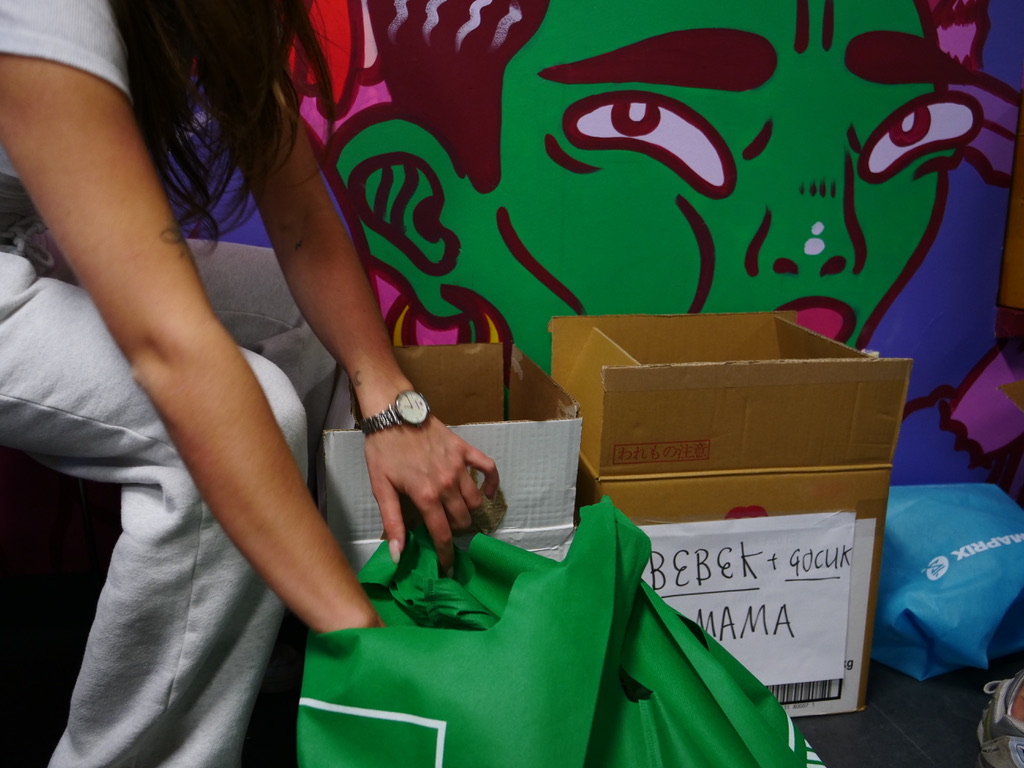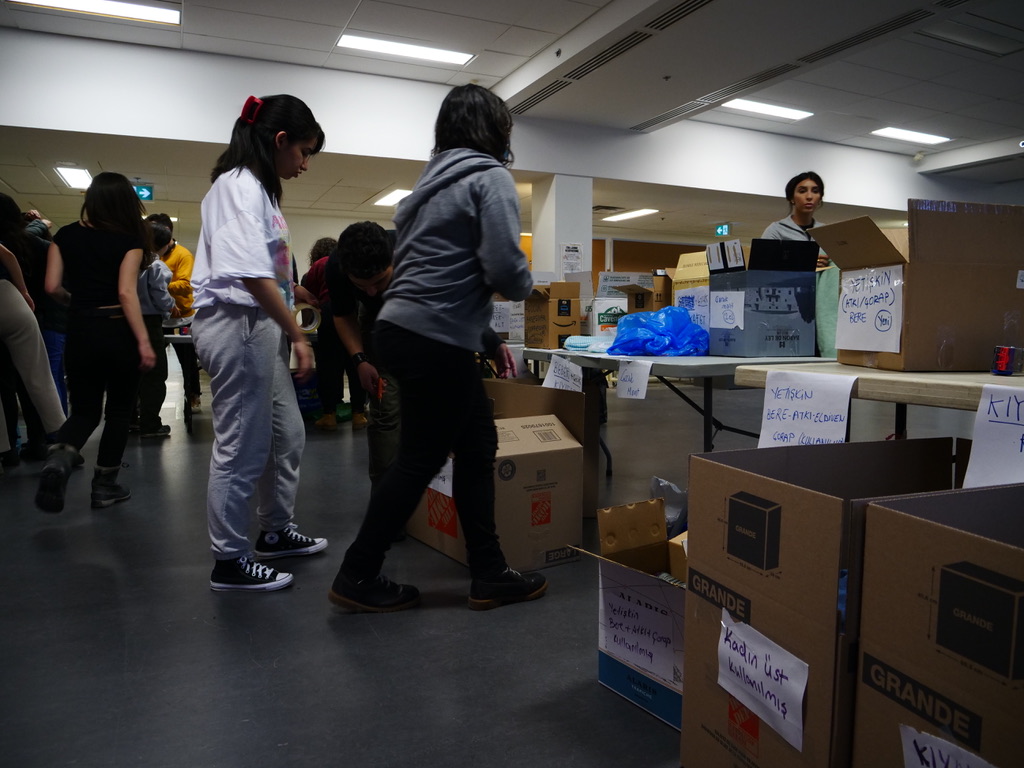On Feb. 6, a magnitude 7.8 earthquake struck northwestern Syria and southern Turkey. On Monday, rescue and recovery efforts were still bubbling when a separate 6.3-6.4 magnitude earthquake occurred
“Their building collapsed in the first earthquake… help didn’t get there for three days. When [it did], they were already gone,” said Ari Inceer, a Turkish student studying at Concordia who lost one of her childhood friends. Inceer is from Kahramanmaraş, a city hard-hit by the disaster.
Over the past two weeks, the death toll has climbed to over 46,000. Around the border between Turkey and Syria, there is a convergence of tectonic plates that makes the area seismologically vulnerable. Millions are displaced.
“I don’t know if they were alive [or died instantly]. I don’t know if they called for help,” said Inceer, referring to her friend.
“I haven’t seen my brother, sister, mother [in years]… almost losing them, even just one of them, is so scary,” said Inceer. At a cousin’s home in Istanbul (further from the earthquake’s epicenter) her family waits for answers. Their home in Kahramanmaraş has not collapsed, but it may be unstable.
Sarah Dadouche, a Syrian student, described parents that are unable to reach dead or trapped children. “People are going crazy…They know they’re dead, but…they want to take them and bury them with their own hands.” Dadouche’s family is physically okay. “They were very shaken. They [fled onto] the streets…I was thinking, ‘this is down in the south in [Damascus].’ If you go up to the north, it’s crazy.”
International sanctions have made getting aid to Syria difficult. “Because of the sanctions… no one [cares] about us,” said Dadouche. “My mind is with my parents, my mind is with my people… I don’t feel like I deserve to be here.”
“Sometimes you need to be like an actor [when] coming to class and deliver the content to the best of your ability; irrespective of what you feel,” said a Turkish professor at Concordia who wished to remain anonymous. “You need to go on and start the show.”
Furkan Göçmez is another Turkish student. From Malatya, his home has been destroyed. “I don’t know how long they’re going to be on the streets. My family just became homeless, in like two minutes,” he said.
“I’m kind of pinching myself like, ‘oh, is this really happening?’” said Göçmez. While fleeing their building, his mother fell and broke her nose. “I don’t know where to call home. If I decide to go now, where would I go?”
While some students report professors being insensitive to their experiences, others feel supported.
Inceer said, “All of [my teachers] separately asked if I needed anything from them personally.”
Karam Helou is the internal vice-president of the Syrian Student Association at Concordia (SSA). “[One professor from JMSB] reached out to me on the day of the earthquake. She made sure that my family was okay. I thought that was really sweet of her,” he said.
On Feb. 7, the International Students Office (ISO) at Concordia sent an email to members of the Syrian and Turkish community offering support. “We are devastated to hear of the earthquakes in Syria and Turkey this week. I would like to personally let you know that we are thinking of you and your families,” wrote Kelly Collins, manager of the ISO. The email contained links to various University resources.
From international students to Quebec residents, a number of University members received the email, including Inceer. Göçmez, Helou, and Dadouche are among students who reported not receiving the ISO’s message.
Dadouche feels that the University was very outspoken when the Russian invasion of Ukraine began. “[It] was like, ‘the news that is happening in Ukraine is a lot on all of us, so take all the time you need and these are the mental resources that you may need.’” Dadouche does not feel the same message was put out by Concordia after the earthquake. “I just keep thinking, are we not human? Do we not matter?”
When the war in Ukraine officially began on Feb. 24, 2022, the University published a notice online with resources for those who may be impacted four days later. On March 3, 2022, Concordia President Graham Carr came out with a statement on the war.
After the Feb. 6 Turkey-Syria earthquake, Concordia published a notice online with links to resources seven days later.
“The notice for students was posted on the Student Hub [on Feb. 13] when we realized this was not done [on Feb. 10] which was an oversight on our part,” said Concordia spokesperson Vannina Mestracci.
“I don’t think we’re waiting for any sort of statements from [President Carr]… we’ve [gotten] used to it,” said a Syrian student studying at JMSB. “We got used to being left out,” they added.
“Hearing the voice of the administration a little bit louder would be helpful. Helpful to whom? Helpful to us, to the people here [in Montreal]. But hearing that, [will it] do anything to the people who simply perished under concrete over there?” said the anonymous professor mentioned earlier. “From a PR point of view, this is important. I wish there was a louder and more compassionate voice from the administration.”
Tuana Bıçakcı is a Turkish student who has been a part of fundraising efforts on campus. “The lack of acknowledgement and support from the University is a little sad…It is really heartbreaking and scary to be so far away from your loved ones when a tragedy like this happens… we could have been so grateful if the University supported us a little more.”
Hindered by international sanctions, getting aid to Syria has been tough. “[Syrians are] human just as much as the Turkish people, just as much as the Ukrainian people,” said Dadouche. “I think the bare minimum [that] the dean or the president or any professor can do is just raise awareness for a couple of minutes. For example, at the beginning of the class.”
Inceer has felt differently. “I actually didn’t pay attention to [the University’s acknowledgement]… I had other worries.” She has been preoccupied with her family feeling secure again. “I’m just trying to find work and help my family…They left everything they own…it keeps me up [at night] and I just want to be able to help them and send money to them. That’s my main focus right now.”
Göçmez also has finances on his mind. “Concordia could open up bursaries for people who are impacted by these events…My family lost their house. My father’s business has stopped there. I will be having financial hardships,” expressed Göçmez.
Combating feelings of helplessness, Göçmez and Inceer volunteered at the Turkish Student Association’s (TSA) donation site. The site was on the seventh floor of the Hall Building from Feb. 7-10. While the TSA is no longer taking material donations, they are still taking monetary donations.
“I focus on what I can control and I feel like this is something I have to do,” said Mert Kaan Kaseler, co-president of the TSA. From sanitary pads to flashlights, the collected materials were swiftly flown to Turkey.



Tolga Osmancik is a Turkish student heavily involved with the fundraising efforts. “This can happen to anyone in any country. When something like this happens, we should remember that we are human beings,” he said.
On Feb. 13, the SSA had an event in the Hall Building as well. In order to support the SSA, you can follow them online.
Jana Noufal Al-Atassi is the SSA’s vice-president of finance. “It would be great if more people talked about what’s happening and what’s been happening even before the earthquake.” She discussed how the world let politics block humanitarian hurdles. “You have to keep in mind [that Syrians are] not numbers. These are humans that are dying.”
“There’s one difference between what’s happening in Turkey and Syria… the sanctions placed on Syria,” said Helou.
“If certain powers wanted to send aid to Syria, they could have,”
Said Talal Akkad, A Syrian Student.
Inceer discussed how Turkey could have been better prepared. “It’s a big earthquake. Three of them happened on the same day… another one happened two weeks after…[but] this shouldn’t have been the result,” she said.
When growing up, Inceer would hear discussions about her area (atop the East Anatolian Fault) being overdue for an earthquake. She is perplexed at how Turkey was unprepared. “You think [the overdue earthquake] is a myth because you trust that the system knows better…when it actually happens, you feel so helpless because it’s the system… you by yourself can’t change the system.”




